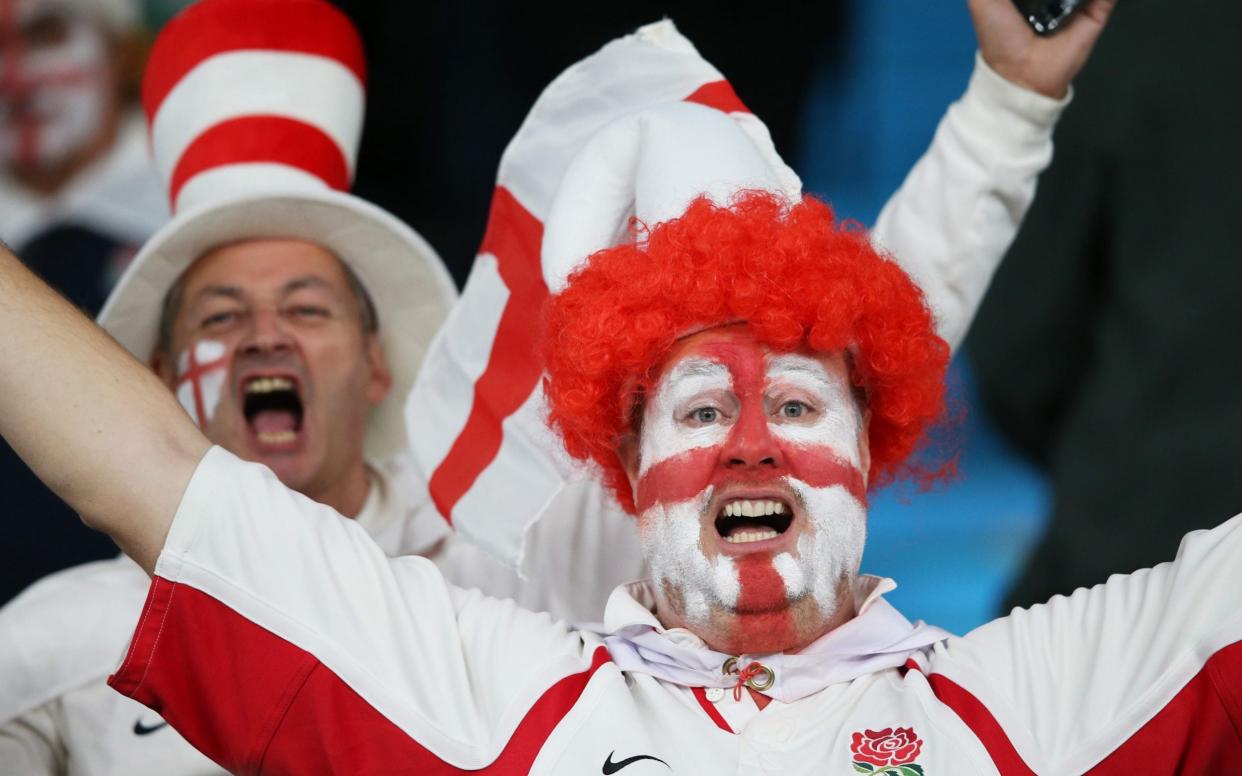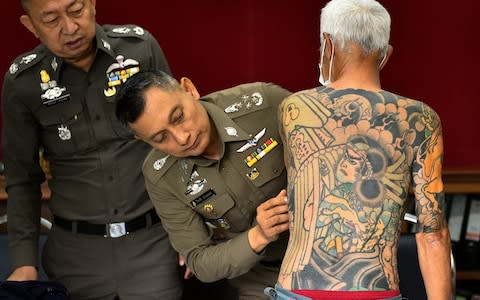Rugby World Cup 2019: Tattooed fans risk being kicked out of Japan's public baths

Tattooed rugby world cup fans have been warned they risk being kicked out of Japan's public baths, as body art is associated with the local mafia.
More than 140,000 supporters from the UK are expected to descend on the country in the next six weeks to watch their teams battle for the Webb Ellis Cup.
But those with tattoos could run into trouble if they expose too much skin, as the Japanese firmly associate inkings with membership of feared 'yakuza' gangs in the criminal underworld of assassinations and drug smuggling.
Travel companies poised to transport thousands of fans to Japan have now warned that the "stigma" of body art is so potent that Britons may be excluded from public baths, swimming pools, beaches and water parks.
Historically, tattooing in Japan was used as a punishment for prisoners, but it was later adopted as a membership symbol of yakuza organised crime gangs, which have been a part of Japanese society for centuries.
So strong is the connection between tattoos and criminals, that some mobsters can be identified by their inkings alone.
Last year a yakuza boss who had been on the run for 15 years was finally hunted down by police after an unsuspecting tourist in awe of the intricate body art posted a picture on social media, which then went viral.
James Mundy from Inside Japan Tours, which is ferrying 1,600 rugby fans to the continent, told The Telegraph: "Most of Japan is aware that many foreigners have tattoos these days and some places will be more forgiving than others when it comes to a tiny little tattoo on the shoulder, but some places will be strict."
It is estimated that 1 in every 200 people in Japan have a tattoo, whereas around one in three people in the UK have at least one inking.
Traditional hot spring public baths, called 'onsen', will be the "main area of concern", as there are very few which accept tattooed guests despite there being no official ban.
Some hotels are even handing out skin-coloured plasters for their customers to paste over their inkings so they don't offend the locals, explained Mr Mundy.
"This will of course have limited effect when people are covered in tattoos," he said. "Unfortunately those people will be asked, politely, not to enter the public onsen."

Charlie Panton, who runs a travel firm in south west London, said there are often signs in public swimming areas saying 'No tattoos' and rugby fans could be ejected if they aren't able to fully cover their body art.
He told The Telegraph: "We have always advised clients that tattoos are a sensitive matter in Japan and have carried a stigma, although perhaps less so in the last few years.
"In some cases you will be barred or asked to leave if the tattoo is big and can't be covered up."
The 'culture and etiquette' advice on the official world cup website states: "In Japan, tattoos carry a certain stigma as they are traditionally associated with the Yakuza, Japan’s organised crime groups.
"This can prove to be a minor inconvenience for tourists whose ink can stop them from entering some gyms and hot springs.
"However, it's nothing that a covering or long sleeve t-shirt can’t fix so there's no need to let it affect your travel plans."
England's opening match is against Tonga at 11.15am today in the city of Sapporo, on Japan's Hokkaido island.

 Yahoo News
Yahoo News 
